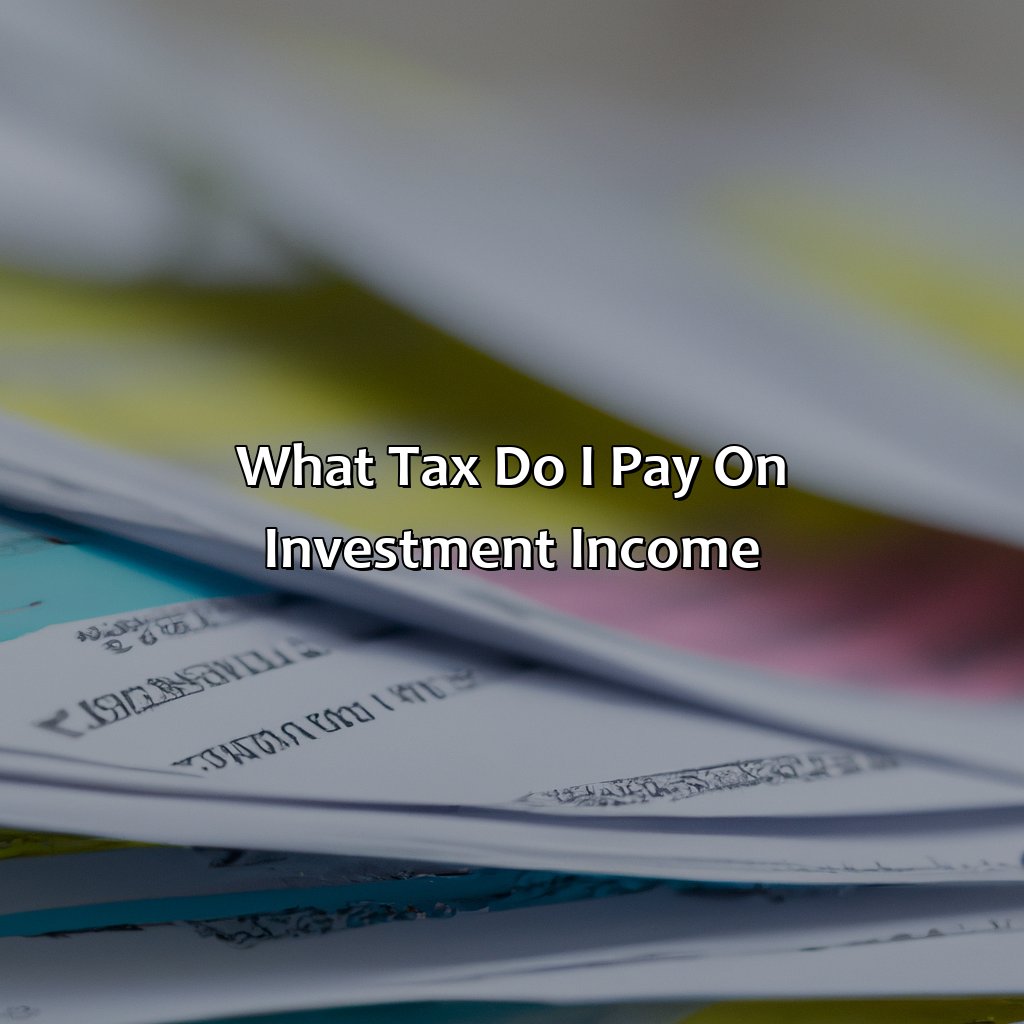What Tax Do I Pay On Investment Income?
Key Takeaway:
- Investment income is subject to taxation: Any earnings from investments, such as dividends, capital gains, or rental income, are subject to taxation by the government.
- Capital gains are taxed differently than ordinary income: If you sell an investment for more than you paid for it, you will be subject to capital gains tax. The tax rate depends on how long you held the investment, with long-term capital gains taxed at lower rates than short-term ones.
- Deductions and credits can help lower your tax liability: You may be able to deduct investment expenses or claim investment tax credits to lower your taxable income. It is important to understand these options to potentially save money on your taxes.
Are you confused about the types of taxes you may need to pay on your investments? Don’t worry; this article will help you understand the various sources of investment income and the taxes you need to pay! You won’t have to worry about being blindsided by hefty taxes ever again.
Overview of investment income taxation
Investment Income Taxation is a complex subject that requires a clear understanding of tax laws. Taxation of income varies with the type of investment. The amount of tax you pay on investment income depends on the source of income, the tax bracket, and your filing status. Income from capital gains, dividends, and interest are subject to different tax rates, which can range from 0% to 20%. Taxpayers can also use tax-deferred accounts to minimize their tax liability on investment income. Different rules apply to different types of retirement accounts and investment funds.
An essential factor affecting the taxation of investment income is the holding period – duration of time an asset is held before it is sold. Short-term capital gains from assets held for less than one year are taxed at a higher rate than long-term capital gains. So, taxpayers who plan to sell their assets soon may need to factor in the tax implications when calculating their potential profits.
Pro Tip: Knowing how and when your investment income is taxed can help you plan and manage your finances more effectively, reducing your tax bill and maximizing your returns. Educate yourself on tax planning strategies, such as tax-loss harvesting and asset location, to make the most of your investment portfolio.
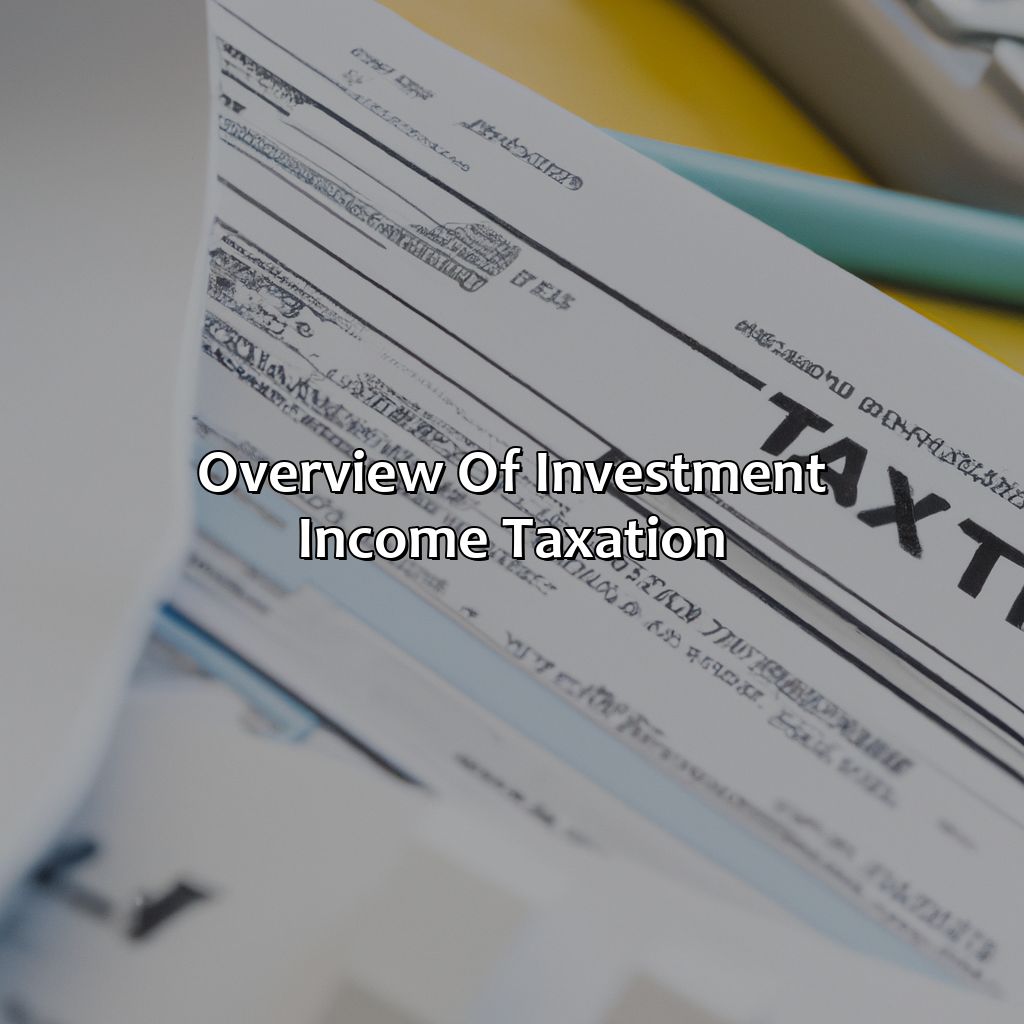
Image credits: retiregenz.com by Yuval Duncun
Types of investment income
Investment income can be sourced from various financial instruments and can be subject to different tax rates. A breakdown of investment income types and their corresponding tax implications are as follows:
| Investment Income Type | Tax Rate |
| Dividend Income | Varies based on individual tax bracket |
| Interest Income | Varies based on individual tax bracket |
| Capital Gains | Varies based on the holding period and the type of asset (short-term or long-term capital gains tax rates apply) |
It is worth noting that investment income is subject to both federal and state taxes, and the tax rates can vary by state.
One important factor to consider when investing is the tax implications of each type of investment income. For example, dividend income from preferred stocks is generally taxed at a lower rate than interest income from bonds.
Many investors also choose to invest in tax-advantaged accounts, such as IRAs or 401ks, which can offer tax benefits on investment income.
An investor once shared that while she earned significant gains from her investment in a stock, she was caught off guard by the taxes due on the capital gains. She learned the importance of understanding the tax implications of her investments and now researches investment decisions more thoroughly.
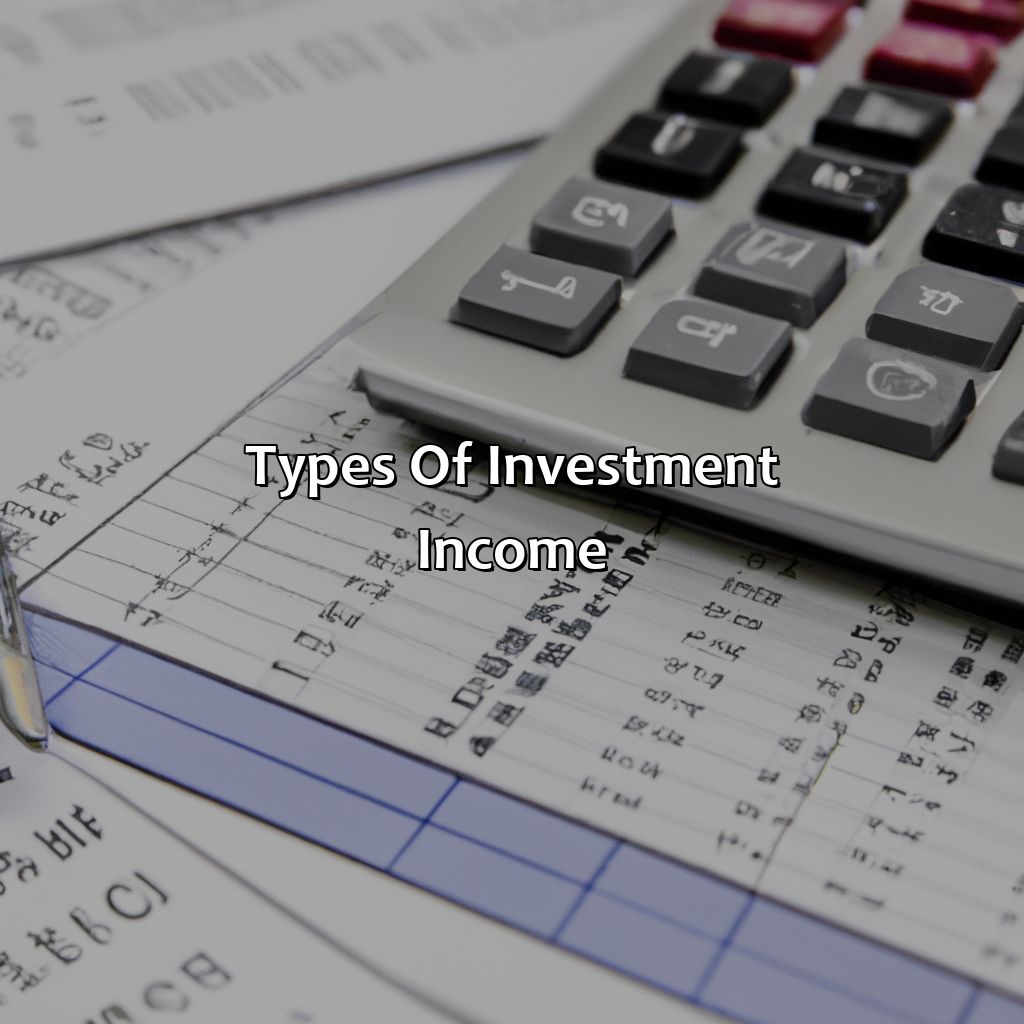
Image credits: retiregenz.com by James Duncun
Tax rates on investment income
Investment income attracts different tax rates depending on various factors such as the type of investment, income level, and tax jurisdiction. Understanding the tax rates on investment income is crucial in making informed decisions concerning investment and tax planning.
The following table shows the tax rates on investment income in the US for the tax year 2021. The table includes the types of investment, the income thresholds, and the corresponding tax rates.
| Type of Investment | Income Threshold | Tax Rate |
|---|---|---|
| Short-term Capital Gains | Any amount | Same as regular income tax rate |
| Long-term Capital Gains | Up to $40,400 (single) or $80,800 (married filing jointly) | 0% |
| Long-term Capital Gains | $40,401 – $445,850 (single) or $80,801 – $501,600 (married filing jointly) | 15% |
| Long-term Capital Gains | Over $445,850 (single) or $501,600 (married filing jointly) | 20% |
| Dividends | Same as long-term capital gains rate depending on income threshold | Same as long-term capital gains rate |
It is worth noting that some types of investment income may attract additional taxes such as the Net Investment Income Tax (NIIT) and the Alternative Minimum Tax (AMT). It’s important to consult a tax professional for guidance on minimizing tax liability on investment income.
According to the Internal Revenue Service (IRS), the maximum federal tax rate on long-term capital gains and qualified dividends is 20%.
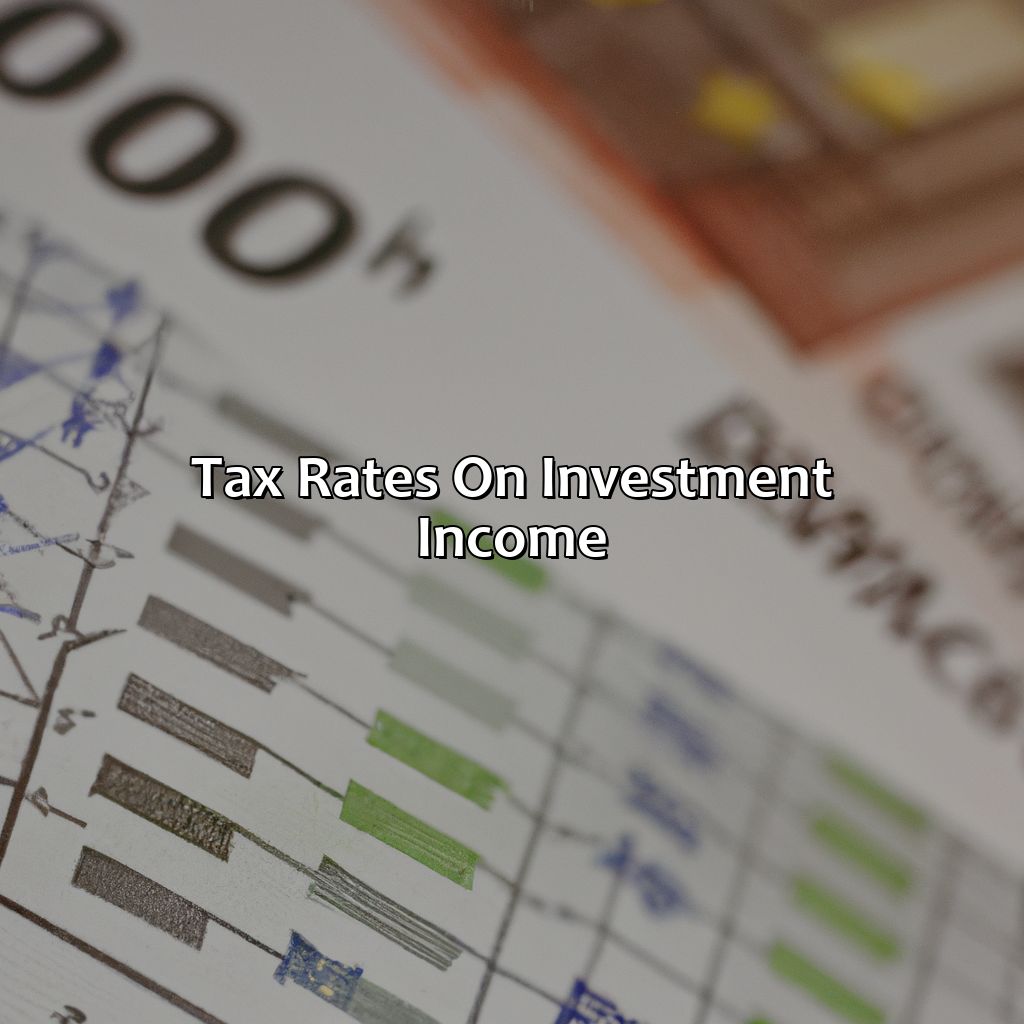
Image credits: retiregenz.com by David Arnold
Tax deductions and credits for investment income
In the world of investing, taxes can have a big impact on one’s bottom line. To optimize your returns, it is important to understand the tax deductions and credits available for investment income.
- Capital losses: Any losses incurred from the sale of investments can be deducted from capital gains to reduce tax liability. If the losses exceed the gains, up to $3,000 can be deducted from other income, with any remaining losses carried forward to future tax years.
- Retirement accounts: Contributions to tax-advantaged retirement accounts, such as Traditional IRAs and 401(k)s, can reduce taxable income and potentially provide a lower tax bracket upon withdrawal. Roth IRAs and Roth 401(k)s offer tax-free withdrawals in retirement.
- Municipal bonds: Interest income from municipal bonds is generally exempt from federal income tax and often from state and local taxes as well.
- Qualified dividends: Certain dividends from US corporations that meet requirements can be taxed at a lower rate than regular income tax rates.
Furthermore, it is important to note that investment expenses, such as brokerage fees and financial advisor fees, can also be deducted from investment income. However, deductions for investment expenses have been limited in recent years, so it is important to stay up-to-date on the latest tax laws.
When it comes to optimizing your tax situation with investment income, it’s important to speak with a qualified tax professional. They can help you navigate the complex tax laws and identify opportunities for tax savings.
Keeping abreast of the latest changes in tax law and taking advantage of available deductions and credits can make a significant difference in the amount of tax you owe on investment income. By working with a tax professional and implementing smart strategies, you can maximize your investment returns and minimize your tax liability.
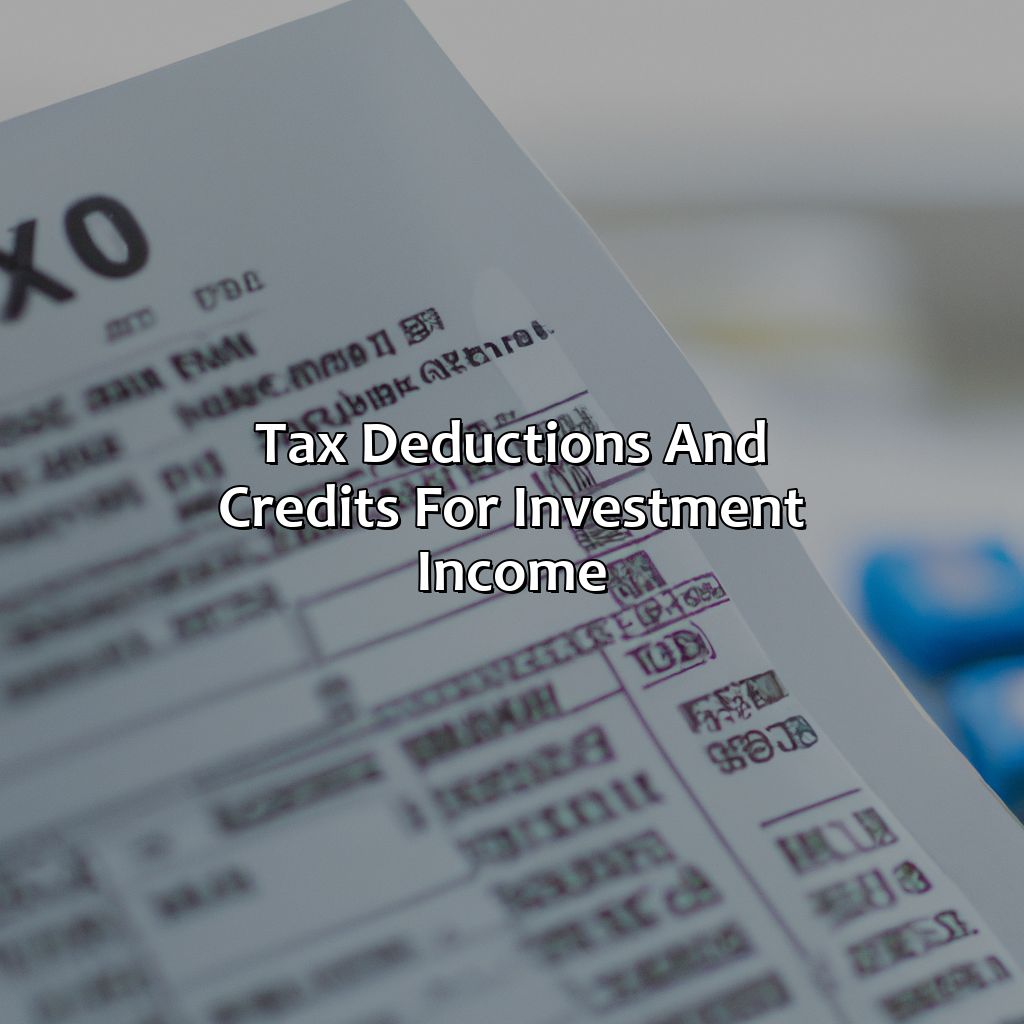
Image credits: retiregenz.com by Yuval Washington
Five Facts About What Tax You Pay on Investment Income:
- ✅ The tax rate on investment income varies depending on the type of income and the amount earned. (Source: IRS)
- ✅ Capital gains tax is a tax on profits earned from selling an asset, such as stocks or real estate. (Source: Investopedia)
- ✅ Dividend income is subject to different tax rates, depending on whether it is considered qualified or non-qualified. (Source: The Motley Fool)
- ✅ Interest income from investments is generally taxed at the same rate as other taxable income. (Source: NerdWallet)
- ✅ Taxes on investment income can often be reduced through strategies like tax-loss harvesting and contributing to tax-advantaged retirement accounts. (Source: Forbes)
FAQs about What Tax Do I Pay On Investment Income?
What tax do I pay on investment income?
Investment income is generally taxed at a different rate than regular income. The amount of tax you pay on your investment income depends on the type of investment, your income level, and whether you held the investment for more or less than a year.
What is short-term capital gains tax?
Short-term capital gains tax applies to investments held for one year or less. The tax rate is the same as your regular income tax rate. If you are in a higher income tax bracket, you will pay a higher rate of short-term capital gains tax.
What is long-term capital gains tax?
Long-term capital gains tax applies to investments held for more than one year. The tax rate is generally lower than the short-term capital gains tax rate and is based on your income level. If you are in a lower income tax bracket, you may pay no long-term capital gains tax at all.
Are there any tax deductions or credits for investment income?
Yes, there may be deductions or credits available that can help reduce the amount of tax you pay on your investment income. For example, you may be able to deduct investment expenses or claim the foreign tax credit if you receive income from investments in foreign countries.
What is the net investment income tax?
The net investment income tax is an additional tax that applies to certain types of investment income, such as dividends, interest, and capital gains, if your income is above a certain threshold. As of 2021, the threshold for individual taxpayers is $200,000 of adjusted gross income.
What should I do if I have questions about my investment income taxes?
If you have questions about your investment income taxes, it’s a good idea to consult with a tax professional. They can help you understand your tax obligations and identify any deductions or credits that may be available to you.
